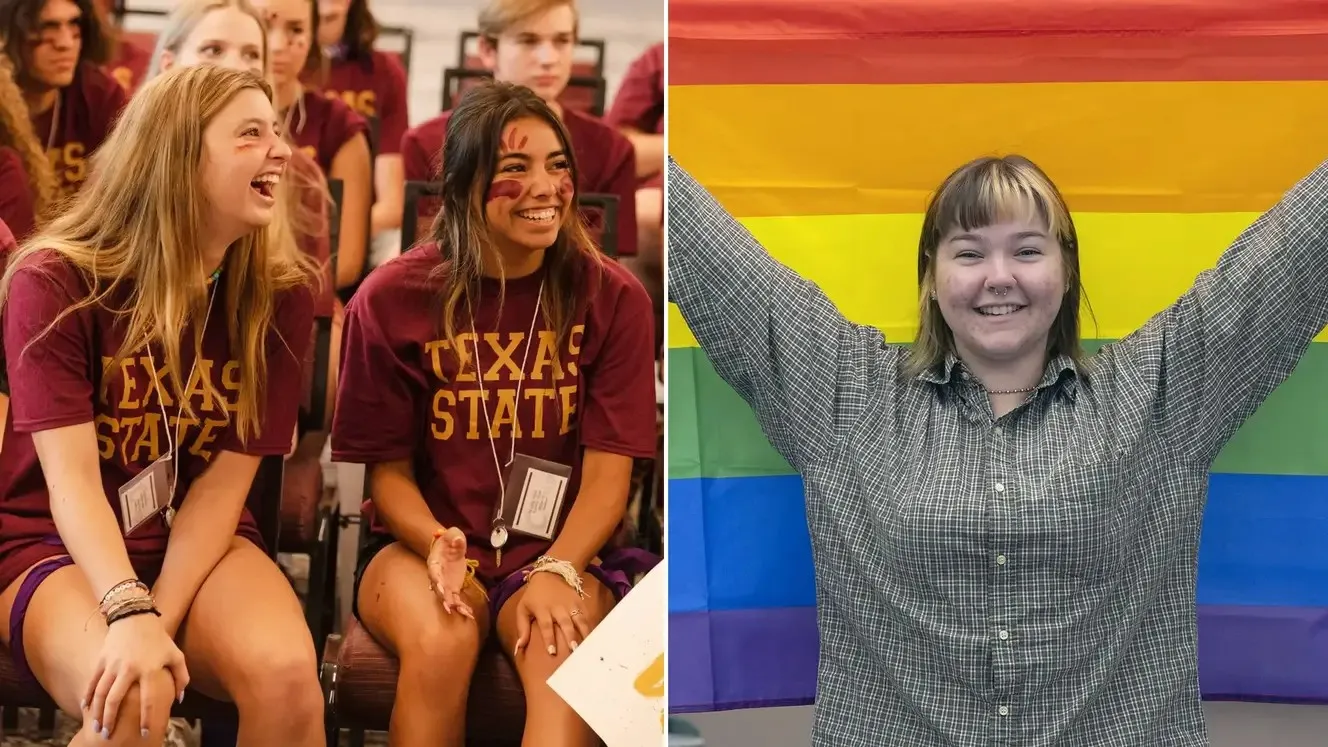In a highly controversial move, the state of Texas has officially banned Pride flags from public school classrooms, declaring that any violation of the new policy will be considered a crime. The decision has sparked intense debate and backlash from LGBTQ+ advocates, educators, and civil rights groups, while supporters argue that the ban aligns with efforts to keep political symbols out of schools.

The Official Ban: What Does It Mean?
The new law prohibits the display of Pride flags—which are widely recognized as symbols of LGBTQ+ rights—in any public school classrooms across the state. This extends to classrooms in elementary, middle, and high schools. Under the policy, teachers, staff, or students who violate the ban by displaying Pride flags could face legal consequences, including misdemeanor charges.
The policy is part of a broader set of guidelines aimed at regulating the presence of symbols deemed “politically charged” in public schools. While the primary focus has been on the Pride flag, other symbols associated with political movements or social causes could also be affected, depending on the interpretation of the law.
Supporters’ Perspective: Removing Political Influence
Supporters of the ban argue that it is designed to keep classrooms politically neutral and focused on education. Proponents believe that schools should be free from displays of political or ideological symbols, which they say can be divisive and distracting for students. They contend that classrooms should be environments where students of all backgrounds feel comfortable and where personal beliefs do not interfere with the learning process.
For those in favor of the ban, the Pride flag is viewed as a political symbol tied to a broader social and cultural movement, and its presence in classrooms could be seen as endorsing a particular ideology. By banning the flag, they argue, schools can maintain a focus on core educational subjects without delving into politically sensitive topics.
Backlash from LGBTQ+ Advocates and Civil Rights Groups
The decision has ignited fierce backlash from LGBTQ+ advocates, civil rights organizations, and many educators, who argue that the ban is a direct attack on the LGBTQ+ community. Critics claim that banning the Pride flag sends a message of exclusion to LGBTQ+ students and staff, and that it undermines efforts to create a more inclusive and supportive environment in schools.
Advocates argue that the Pride flag is not just a political symbol, but a representation of identity and acceptance for marginalized groups. For many LGBTQ+ students, seeing the Pride flag in their school can provide a sense of belonging and safety, especially in environments where they may already feel isolated or discriminated against.
Organizations like the American Civil Liberties Union (ACLU) and GLAAD have condemned the ban, with some planning to challenge the policy in court. They argue that the law infringes on free speech and could violate students’ and educators’ rights under the First Amendment.
The Legal Consequences: Violating the Ban
Under the new law, any individual—whether a teacher, staff member, or student—who displays a Pride flag in a public school classroom could face legal consequences. The offense is classified as a misdemeanor, and violators could be subject to fines, disciplinary action, or even potential jail time, depending on the circumstances and the interpretation of the law.
The prospect of criminal penalties for something as simple as displaying a flag has raised concerns among educators and civil liberties groups, who believe the law goes too far in its efforts to regulate classroom environments.
Public Response: A Divisive Issue
The decision to ban Pride flags has polarized public opinion in Texas and beyond. On social media, the reaction has been swift and intense, with supporters and critics clashing over the implications of the law. Hashtags like #BanOnPride and #ProtectLGBTQStudents have trended on platforms like Twitter, as people debate the issue from both sides.
For supporters of the ban, this move is seen as a necessary step to keep classrooms free from political influence. They argue that schools should focus on education without endorsing specific social movements, and that students should not be exposed to symbols that could be seen as divisive.
Opponents, however, view the ban as discriminatory and harmful, particularly for LGBTQ+ students who may already face challenges in their schools. They argue that banning the Pride flag sends a message that LGBTQ+ identities are not welcome or valid in the educational environment, and that this could lead to further marginalization and bullying.
Broader Implications: A Precedent for Other States?
Texas’ decision to ban Pride flags from classrooms could set a precedent for other states that may be considering similar policies. In recent years, there has been growing debate across the United States about the role of political symbols in public spaces, particularly in schools. Some states have passed or proposed laws that restrict the display of certain flags or symbols, and Texas’ move may embolden similar efforts elsewhere.
At the same time, legal challenges to the ban could lead to a protracted battle over free speech and the rights of students and educators. If the case goes to court, it could set an important legal precedent regarding the limits of expression in public schools.
Conclusion
Texas’ official ban on Pride flags in classrooms and the criminalization of violations has ignited a fierce national debate about the role of political symbols in education and the rights of LGBTQ+ students. As the backlash grows, legal challenges seem likely, and the controversy shows no signs of slowing down.





